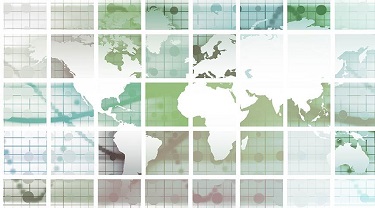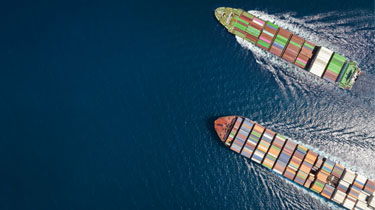
How an Export Credit Agency can help you sell globally
Okay – so what is an Export Credit Agency (ECA) and why should you care?
Why do we need ECAs?
Finance is the lubricant of commerce.
MyEDC account
Manage your finance and insurance services. Get access to export tools and expert insights.
Solutions
By product
By product
By product
By product
Insurance
Get short-term coverage for occasional exports
Maintain ongoing coverage for active exporters

Learn how credit insurance safeguards your business and opens doors to new markets.

See how portfolio credit insurance helped this Canadian innovator expand.
Guarantees
Increase borrowing power for exports
Free up cash tied to contracts
Protect profits from exchange risk
Unlock more working capital

Find out how access to working capital fueled their expansion.
Loans
Secure a loan for global expansion
Get financing for international customers
Access funding for capital-intensive projects

Find out how direct lending helped this snack brand go global.

Learn how a Canadian tech firm turns sustainability into global opportunity.
Investments
Get equity capital for strategic growth

Explore how GoBolt built a greener logistics network across borders.
By industry
Featured

See how Canadian cleantech firms are advancing global sustainability goals.

Build relationships with global buyers to help grow your international business.
Resources
Popular topics
Explore strategies to enter new markets
Understand trade tariffs and how to manage their impact
Learn ways to protect your business from uncertainty
Build stronger supply chains for reliable operation
Access tools and insights for agri-food exporters
Find market intelligence for mining and metals exporters
Get insights to drive sustainable innovation
Explore resources for infrastructure growth
Export stage
Discover practical tools for first-time exporters
Unlock strategies to manage risk and boost growth
Leverage insights and connections to scale worldwide

Learn how pricing strategies help you enter new markets, manage risk and attract customers.

Get expert insights and the latest economic trends to help guide your export strategy.
Trade intelligence
Track trade trends in Indo-Pacific
Uncover European market opportunities
Access insights on U.S. trade
Browse countries and markets
Get expert analysis on markets and trends
Discover stories shaping global trade
See what’s ahead for the world economy
Monitor shifting global market risks
Read exporters’ perspectives on global trade
Knowledge centre
Get answers to your export questions
Research foreign companies before doing business
Find trusted freight forwarders
Gain export skills with online courses
Get insights and practical advice from leading experts
Listen to global trade stories
Learn how exporters are thriving worldwide
Explore export challenges and EDC solutions
Discover resources for smarter exporting
About
Discover our story
See how we help exporters
Explore the companies we serve
Learn about our commitment to ESG
Understand our governance framework
See the results of our commitments
MyEDC account
Manage your finance and insurance services. Get access to export tools and expert insights.

With the help of Export Credit Agencies (ECAs) like Export Development Canada (EDC), Canadian companies can compete globally, sell on longer payment terms and be sure to be paid.
In this blog post:
While you wouldn’t think that Export Credit Agencies are a fascinating topic for cocktail parties, you’d be surprised how often I’m asked about them. Most people understand ECAs help companies export (“export” is right in the name, after all), but what exactly do ECAs do?
In a nutshell, ECAs can help you access global business opportunities so you can sell more of your products and services. In practical terms, they provide loans, guarantees and insurance to help reduce risks when you sell outside Canada. They can also guarantee payment when you face political or commercial risks such as expropriation or being unable to get your cash out of a country. Typically, most ECAs are arms of government and partner with banks and insurance companies to extend loans and insurance.
Export Development Canada (EDC), is Canada’s official export credit agency.
Trade makes up more than 30% of the Canadian economy. As the world economy globalizes, our future increasingly depends on trade. ECAs like EDC are here to keep on top of those global markets and make trade possible for Canadian companies.
Finance is the lubricant of commerce.
ECAs share a broad mission to increase trade and build their economies through international sales. We work together to create equal opportunities by ensuring that no country unfairly subsidizes its domestic companies. We’re all governed through agreements reached through involvement in the Organization for Economic Cooperation and Development (OECD) and the International Union of Credit and InvestmentInsurers (The Berne Union).
While the financial practices of ECAs are similar because of the OECD and the Berne Union agreements, ECAs are supported by governments in different ways and follow various models.
For example, UK Export Finance is a division of the government Department for International Trade; Euler Hermes Aktiengesellschaft is a private company that manages trade credit insurance for the German government; EDC is a Crown corporation that operates on commercial principles and at arm’s length from the Canadian government.
Unlike many ECAs, we are self-financing and operate on commercial principles. In fact, we pay an annual dividend to the Canadian government. Since 2011, we’ve paid $3.6 billion.
Recognized as experts on international trade, we offer our customers global market knowledge, financial support and connections. We provide insurance, direct loans and guarantees to banks to encourage them to provide more cash to Canadian companies.
Our goal is to support small and medium-sized businesses as they grow into the leading companies of tomorrow. To do this, we’ve had to change as an organization to meet the changing needs of Canadian companies.
Our challenge has been, and continues to be, to keep on top of the increasing pace of change so we can keep up with our innovative Canadian industries and the shifting global market.
When we were established in 1944, EDC had 13 customers and supported $3.75 million in sales to 52 countries.
Today, we serve over 7,000 customers in more than 200 markets. In 2016, we enabled over $102 billion in international sales and global investments.
As well as continuing to support traditional sales such as automobiles and resources, we work with leading-edge companies laying the foundation for the future, such as in the clean technology, high tech and engineering sectors.
EDC believes that good business is good for business. We work hard to conduct business with transparency and integrity. We include social and environmental concerns into our finance processes and advocate for social responsibility. We focus on priorities such as combatting corruption, climate change, human rights and investing in our community.
Our job is to help companies take advantage of global business opportunities because trade is critical to Canada. We do this by being actively engaged on the world stage and using our knowledge and experience to provide the support Canadian companies need to be globally competitive. As the importance of trade to our economy grows, you can be sure that we will be working even harder. We want to ensure that you and all Canadian companies can compete in a fair marketplace and have the support you need to go, grow and succeed internationally.
If you want to know more about how EDC can help your company grow internationally, feel free to learn more about our trade solutions.
Discover why considering a country in an FTA with Canada is your best option.

Learn how an Asian food importer grew in Latin America through EDC support and private labels.

Discover how EDC’s financing solutions help Canadian companies expand internationally.

Discover how market diversification can enhance your export strategy and provide new ways for your business to grow in today’s uncertain trade climate.

After accessing EDC Portfolio Credit Insurance, the environmental company saw sales grow by 60% and now exports to every continent

Learn how Wuxly Movement CEO, James Yurichuk, goes through a day leading the animal-free parka company.